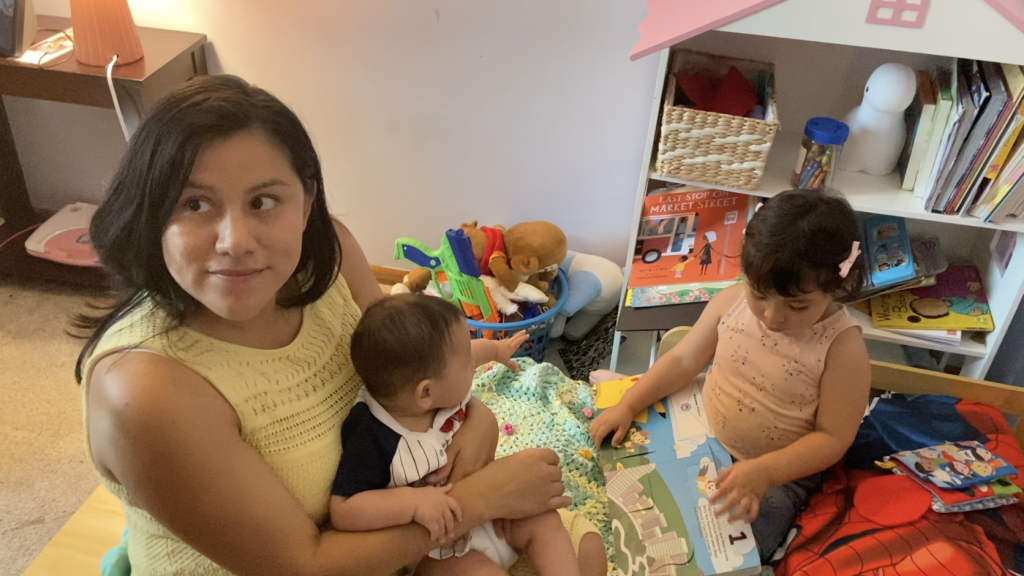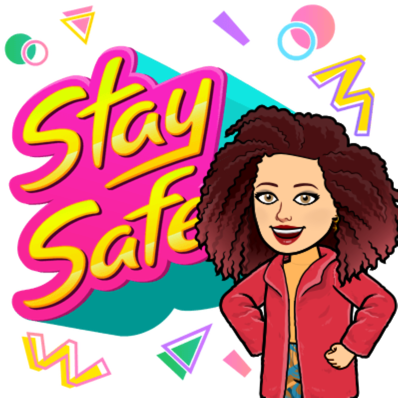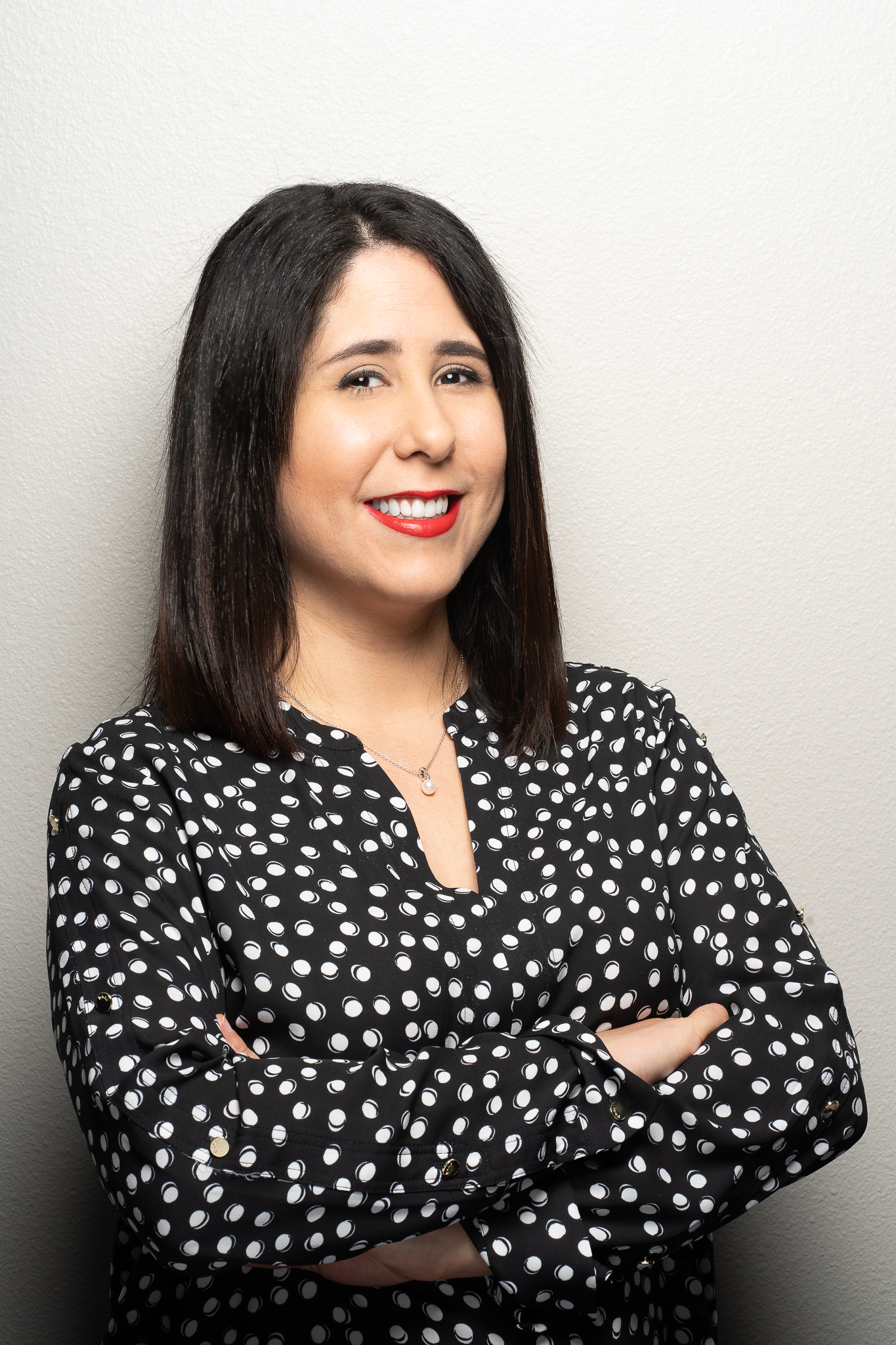NewPublica learns how to avoid misinformation and keep our community safe.
Epidemiologist Maria Del Mar Pacheco completed her doctorate in public health during the first year of the pandemic, in 2020. Now, she is working to further COVID-19 prevention by working closely with the Minnesota Department of Health (MDH) and the Centers for Disease Control and Prevention (CDC).
Pacheco’s work is focused on analyzing collected data from an assessment she conducted on people who displayed symptoms and tested positive for COVID-19 at the Minneapolis-St. Paul airport (MSP). Participants shared their knowledge about how they could have caught the virus and their vaccination history, which helped the government assess public policies and educate Minnesotans about how to stay safe. She also made it her objective to inform her community by providing information about the tools to help slow the spread of COVID-19.
Dr. Pacheco worked with passengers at MSP through testing sites. She notified the CDC about people with positive cases that had the intention to travel. “The purpose was to reach [the passengers] and provide them with CDC and MDH’s recommendations,” Pacheco said.
With the majority of Minnesotans now vaccinated, and many having received a booster shot, the risk of catching the virus is less than when the pandemic started in 2020. Pacheco considered this progress due to vaccinations and access to the accurate information from trusted sources.
Novavax and the Bivalent boosters are the two most recent vaccines authorized for use in the United States. The Bivalent booster protects people against the original COVID strain as well as the Omicron BA.4 and BA.5 variants. You can receive this shot no matter what COVID-19 vaccine type or booster you’ve received as recently as two months prior, as long as you have completed a primary vaccine series.
The Novavax vaccine is a two-dose primary series for first-time vaccine recipients. It’s formulated differently from the other vaccines on the market but provides similar protection against developing severe disease.
“Neither vaccine type is better or worse than the others,” Pacheco said. “They all protect us against COVID. You only have to make sure to keep yourself up to date with the shots.”
Monkeypox is a virus that causes similar symptoms to Smallpox. It is spread by direct contact with another infected person, causing its symptoms (fever, chills, body aches) to show three weeks after exposure. Its distinctive symptom is the rash. Luckily, there is a vaccine for the virus and CDC recommends it to those who are sexually active and have multiple partners.
CDC and the MDH have provided updated information daily, but one of the greatest obstacles during the pandemic was a lack of information and the promotion of fake news. “This is a new virus,” Pacheco said. “At first there was limited information due to the lack of preventative methods and public policies, which caused the virus to spread easily.”
Awareness surrounding COVID-19 and other new viruses are essential for children and their parents as they have returned to in-person classes at school. The first two doses are permitted for children six-months-old to four-years-old. Children five-years-old and older can also get a booster shot.
“I know there was a concern with children going back to school, but I recommend vaccinating our children and educating them on the preventative steps, like wearing a mask, washing our hands, and staying home if you have symptoms,” Pacheco said. “If your child is sick, don’t send them to school and inform those that have been in contact.”
The Novavax vaccine is a two-dose primary series for first-time vaccine recipients. It’s formulated differently from the other vaccines on the market but provides similar protection against developing severe disease.
“Neither vaccine type is better or worse than the others,” Pacheco said. “They all protect us against COVID. You only have to make sure to keep yourself up to date with the shots.”
Monkeypox is a virus that causes similar symptoms to Smallpox. It is spread by direct contact with another infected person, causing its symptoms (fever, chills, body aches) to show three weeks after exposure. Its distinctive symptom is the rash. Luckily, there is a vaccine for the virus and CDC recommends it to those who are sexually active and have multiple partners.
CDC and the MDH have provided updated information daily, but one of the greatest obstacles during the pandemic was a lack of information and the promotion of fake news. “This is a new virus,” Pacheco said. “Due to unfamiliarity in the beginning, there weren’t any preventative methods and public policies weren’t followed (by many state citizens), which caused the virus to spread.”
Awareness surrounding COVID-19 and other new viruses are essential for children and their parents as they have returned to in-person classes at school. The first two doses are permitted for children six-months-old to four-years-old. Children five-years-old and older can also get a booster shot.
“I know there was a concern with children going back to school, but I recommend vaccinating our children and educating them on the preventative steps, like wearing a mask, washing our hands, and staying home if you have symptoms,” Pacheco said. “If your child is sick, don’t send them to school and inform those that have been in contact.”

Ever since the pandemic began, Andrea Castillo and her family were always concerned with being vaccinated against COVID. “People were scared in the beginning, but it’s been over a year since people have gotten their vaccines and things seem to be going well,” Castillo said. “With the time taken to release vaccines that are safe for children, it makes me feel more confident in vaccinating my children.”
After Andrea and her husband experienced COVID, they made sure their two-year-old girl was vaccinated to lessen any future symptoms, while her four-month-old boy recieved his first vaccine in November. Her daughter had her two first doses, and received her booster shot with no symptoms.
“It brings our family peace of mind to know that we are protected from undergoing the harsher symptoms of the virus,” Castillo said.
Pacheco recommends Minnesotans and the Latine community receive their first two doses of the vaccine and to continue with their booster shots. “Let your doctors know if you’re allergic to any components of the vaccine, or if you are displaying any symptoms,” Pacheco said. “Most importantly, consult websites like MDH and CDC that provide correct information, so as not to get confused with fake news on social media.”

I’m a Communications Specialist and a Journalist by day and wishing you good health by night!
Do you enjoy reading NewPrensa?
Forward it to someone you think may enjoy it too!
Got suggestions, feedback, or a good scoop?
Send it to us at newprensa@newpublica.com
If someone sent our newsletter or this article your way, feel free to subscribe to get local, BIPOC news delivered to your inbox every Thursday morning.



